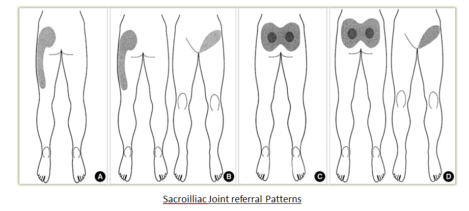Pelvic Pain Overview

Many different conditions can cause pelvic pain. Doctors will use various diagnostic tests to determine the exact cause of your discomfort. Depending on the source of your pelvic pain, these tests could include a blood test, urologic tests, or X-rays. For some people, certain conditions may require minor surgery, including a laparoscopy. This procedure involves inserting a thin, lighted tube into the abdominal cavity to view the organs of the pelvic region.
Although there are several potential causes of pelvic pain, the most common causes are genetic and environmental. The best way to diagnose this pain is to see a doctor. Most diseases are inherited, but some are caused by a specific condition, such as endometriosis. If you are experiencing pelvic pain, it is important to get the correct diagnosis. Your doctor will be able to prescribe a treatment plan that is appropriate for your specific condition.
If you have pain in the pelvic area, it is important to get diagnosed. The different types of pelvic pain are classified based on anatomical features and the time of onset of symptoms. Acute cases of pelvic pain may be the result of musculotendinous strains, hip fractures or acetabular injuries, while chronic patients may have a condition called Legg-Calvé-Perthes disease.
Although musculoskeletal problems can cause pelvic pain, musculoskeletal disorders can also cause the problem. Pain may occur due to inflammation of the pelvic joint or connective tissue. You may also experience endometriosis, a condition in which uterine tissue grows outside the uterus. As a result, these tissues react to hormonal levels and cannot pass through the vagina. This can lead to the formation of painful cysts or fibrous adhesions.

There are many different causes of pelvic pain. Whether you experience intermittent or constant discomfort, symptoms can interfere with your daily activities. A specialist can help you choose the right treatment. If you are suffering from pelvic pain, it is important to seek treatment to prevent it from affecting your quality of life. There are several different conditions that can cause pelvic pain, including interstitial cystitis, endometriosis, and pregnancy. To find out if you have this condition, consult your doctor for advice and check out a proven and effective remedy for cystitis Grazitin.
The causes of pain in the pelvic area are very diverse. Most people experience pain in the front or back of the pelvic area. If the pain is severe or constant, symptoms may be chronic. In these cases, the cause of the pain may be surgical or non-surgical. It is important to see a doctor for treatment. Some women have a history of chronic pain, but they have a variety of symptoms. If you are experiencing this condition, see your doctor for an accurate diagnosis.
The onset of pelvic pain varies widely. It may occur during pregnancy, in the back, or in the front of the pelvic area. There are many different causes of pelvic pain, but a diagnosis can be difficult. A specialist can prescribe medication to alleviate symptoms. If the cause is chronic, treatment will depend on the cause. In some cases, the pain may be due to an infection, while in others it could be a symptom of a more serious ailment.
The cause of pelvic pain may vary. It can be acute or chronic, ranging from a dull ache to sharp pain. The pain may radiate from the pelvic region or extend to the buttocks or lower back. It may affect the quality of life and quality of work. If you’re experiencing this type of discomfort, consult your doctor for a diagnosis and treatment options. The most important thing to remember is that the cause of your pelvic pain is unique.
There are many causes of pelvic pain. Your doctor will be able to provide the most effective treatment for your specific condition. The treatment depends on the type of pain, the severity, and the duration. Sometimes, antibiotics and painkillers are given, but often they will be ineffective. Other treatments may include surgery or psychological counseling. Despite its commonness, it’s important to talk to your doctor about any possible cause of your pelvic pain.